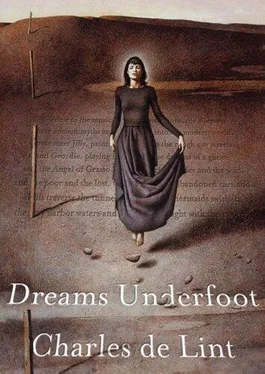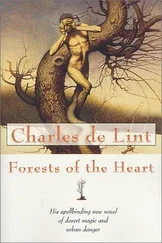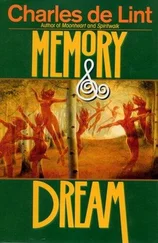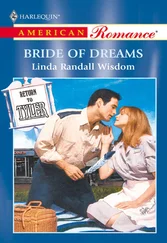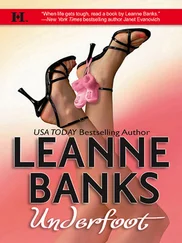Remember this: Neither hope nor despair have power of their own; they can only provide the fuel that you will use to prevail or be defeated.”
“Pop psychology,” Moira muttered.
Diane smiled. “Yet, like old wives’ tales, it has within it a kernel of truth, or why would it linger?”
“So what am I doing here?” Moira asked. “I never gave up. I’m still trying.”
Diane looked at her brother. He shrugged his shoulders. “I admit defeat,” he said. “She is yours.”
Diane shook her head. “No. She is her own. Let her go.” Jack turned to Moira, the look of a petulant child marring his strong features before they started to become hazy.
“You’ll be back,” he said. That dry voice was like a desert wind, its fine sand filling her heart with an aching forlornness. “Hope is sweet, I’ll admit that readily, but once Despair has touched you, you can never be wholly free of its influence.”
A hot flush ran through Moira. She reeled, dizzy, vision blurring, only half hearing what was being said. Her head was thick with a heavy buzz of pain.
But Hope is stronger.
Moira wasn’t sure if she’d actually heard that, the sweet scent of blossoms clearing her heart of Despair’s dust, or if it came from within herself—something she wanted—had to believe. But it overrode Despair’s dry voice. She no longer fought the vertigo, but just let it take her away.
Moira was suddenly aware that she was on her hands and knees, with dirty wood under her. Where
... ?
Then she remembered: Walking across the covered bridge. The city. Hope and Despair.
She sat back on her haunches and looked around herself. She was back in her own world. Back—if she’d ever even gone anywhere in the first place.
A sudden roaring filled her head. Lights blinded her as a car came rushing up on the far side of the bridge. She remembered Eddie, her fear of some redneck hillbillies, but there was nowhere to run to. The car screeched to a halt on the wood, a door opened. A man stepped out onto the roadway of the bridge and came towards her.
Backlit by the car’s headbeams, he seemed huge—a monstrous shape. She wanted to bolt. She wanted to scream. She couldn’t seem to move, not even enough to reach into her purse for her switchblade.
“Jesus!” the stranger said. “Are you okay?”
He was bent down beside her now, features pulled tight with concern.
She nodded slowly. “I just ... felt dizzy, I guess.”
“Here. Let me help you up.”
She allowed him to do that. She let him walk her to his car. He opened up the passenger’s door and she sank gratefully onto the seat. The man looked down to the end of the bridge by which she’d entered it what seemed like a lifetime ago.
“Did you have some car trouble?” the man asked.
“You could say that,” she said. “The guy I was with dumped me from his car a few miles back.”
“Are you hurt?”
She shook her head. “Just my feelings.”
“Jesus. What a crappy thing to do.”
“Yeah. Thanks for stopping.”
“No problem. Can I give you a lift somewhere?”
Moira shook her head. “I’m going back to Newford. I think that’s a little far out of your way.”
“Well, I’m not just going to leave you here by yourself.” Before she could protest, he closed the door and went back around to the driver’s side.
“Don’t worry,” he said as he got behind the wheel. “After what you’ve been through, a guy’d have to be a real heel to—well, you know.”
Moira had to smile. He actually seemed embarrassed.
“We’ll just drive to the other side of the bridge and turn around and then—”
Moira touched his arm. She remembered what had happened the last time she’d tried to go through this bridge.
“Do me a favor, would you?” she asked. “Could you just back out instead?”
Her benefactor gave her a funny look, then shrugged. Putting the car into reverse, he started backing up. Moira held her breath until they were back out on the road again. There were pines and cedars pushing up against the verge, stars overhead. No weird city. No bridges.
She let out her breath.
“What’s your name?” she asked as he maneuvered the car back and forth on the narrow road until he had its nose pointed towards Newford.
“John—John Fraser.”
“My name’s Moira.”
“My grandmother’s name was Moira,” John said.
“Really?”
He nodded.
He seemed like a nice guy, Moira thought. Not the kind who’d try to pull anything funny.
The sweet scent of blossoms came to her for just a moment, then it was gone.
John’s showing up so fortuitously as he had—that had to be Hope’s doing, she decided. Maybe it was a freebie of good luck to make up for her brother’s bad manners. Or maybe it was true: if you had a positive attitude, you had a better chance that things would work out.
“Thanks,” she said. She wasn’t sure if Hope could hear her, but she wanted to say it all the same.
“You’re welcome,” John said from beside her.
Moira glanced at him, then smiled.
“Yeah,” she said. “You, too.”
His puzzled look made her smile widen.
“What’s so funny?” he asked.
She just shrugged and settled back into her seat. “It’s a long weird story and you wouldn’t believe me anyway.”
“Try me.”
“Maybe some other time,” she said.
“I might just hold you to that,” he said.
Moira surprised herself with the hope that maybe he would.
People don’t behave the way they should; they behave the way they do.
—Jim Beaubien and Karen Caesar
She sat on her rock, looking out over the lake, her back to the city that reared up behind her in a bewildering array of towers and lights. A half mile of water separated her island from Newford, but on a night such as this, with the moon high and the water still as glass, the city might as well have been on the other side of the planet.
Tonight, an essence of Marchen prevailed in the darkened groves and on the moonlit lawns of the island.
For uncounted years before Diederick van Yoors first settled the area in the early part of the nineteenth century, the native Kickaha called the island Myeengun. By the turn of the century, it had become the playground of Newford’s wealthy, its bright facade first beginning to lose its luster with the Great Depression when wealthy landowners could no longer keep up their summer homes; by the end of the Second World War it was an eyesore. It wasn’t turned into a park until the late 1950s. Today most people knew it only by the anglicized translation of its Kickaha name: Wolf Island.
Matt Casey always thought of it as her island.
The cast bronze statue he regarded had originally stood in the garden of an expatriate Danish businessman’s summer home, a faithful reproduction of the wellknown figure that haunted the waterfront of the Dane’s native Copenhagen. When the city expropriated the man’s land for the park, he was generous enough to donate the statue, and so she sat now on the island, as she had for fifty years, looking out over the lake, motionless, always looking, the moonlight gleaming on her bronze features and slender form.
The sharp blast of a warning horn signaling the last ferry back to the city cut through the night’s contemplative mood. Matt turned to look to the far side of the island where the ferry was docked. As he watched, the lights on the park’s winding paths winked out, followed by those in the island’s restaurant and the other buildings near the dock. The horn gave one last blast. Five minutes later, the ferry lurched away from the dock and began the final journey of the day back to Newford’s harbour.
Читать дальше
